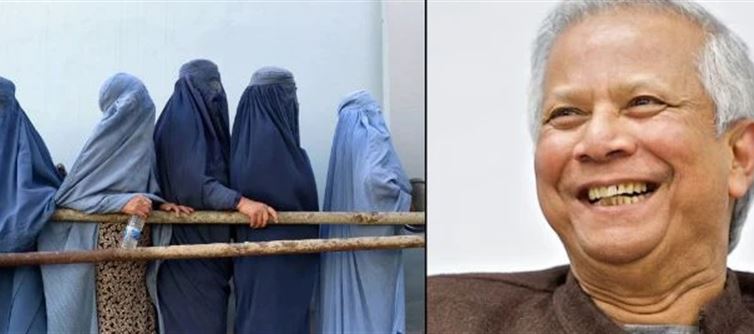
The "Bangladesh Bank" issued a Taliban farman (diktat) on July 21st of this year that forbade female employees from donning "leggings," "short dresses," or "short sleeves." Additionally, the Central bank of Bangladesh's mandate advised women to wear headscarves and the hijab.
Additionally, "Bangladesh Bank" threatened to take disciplinary action against staff members who disobey the new rules. The Central bank of bangladesh has resorted to restricting women's attire less than a year after Sheikh Hasina's downfall.
The ridiculous order has been criticized by women's organizations. "I've never seen such a directive before," noted Fauzia Moslem, president of the bangladesh Mahila Parishad. But it's easy to understand why this policy was put in place, given everything that's going on right now.
"A certain cultural sphere is being shaped, and this directive reflects that effort," she said. The directive was revoked on Thursday, July 24, following a social media uproar caused by the Taliban farman of the "Bangladesh Bank."
"The governor, who is now overseas, voiced his ire and gave the order to withdraw the matter right away after learning about this internal matter through the media. The Central bank of bangladesh stated at a news conference that it hoped this circular would not restrict anyone's ability to wear whatever they want to work.
New-found love for the Taliban and plans to turn bangladesh into Afghanistan
This directive from the 'Bangladesh Bank' was very similar to the Taliban regime's directives in Afghanistan, which prohibited women from dressing however they pleased.
Although the situation in bangladesh does not now appear to be as dire as it is in Afghanistan, the newfound affection for the Taliban sets the stage for future restrictions on women.
In the past, Islamists in bangladesh had wreaked havoc on university professors by calling them "anti-hijab." As is the case in Taliban-ruled Afghanistan, women and girls in bangladesh will soon fear arrest for displaying their faces in public.
An Islamic group called "Jamaat-Char Monai" declared earlier this month that it intended to transform bangladesh into a country that adheres to Sharia law, much like Afghanistan. Additionally, it pledged to adopt the Taliban regime's model.
"If a government is formed by winning the national election, the Islamic Movement bangladesh will introduce Sharia law in the country," said Mufti Syed Muhammad Faizul Karim, the organization's head.
"We will adhere to Afghanistan's current structure of governance. Hindus would also be granted rights under Sharia law, which we will enact if we win power," he continued.
Declining respect and freedom for women in Bangladeshi society
In april this year, Muslims belonging to the radical outfit 'Hefazat-e-Islam' hung the effigy of a woman, stripped and defiled it with shoes to demand the abolishment of the women Affairs Reform Commission in Bangladesh.
The famous 'Anti terrorism Raju Memorial' sculpture is close to the university of Dhaka campus, where the incident took place.
Khoborer Kagoj posted a deleted video of Muslims attacking a woman's effigy, kicking, defiling, and whipping it with shoes to show their displeasure. The effigy of the woman was dressed in a saree (the kind that Hindu women wear) with her hands tied behind her.




 click and follow Indiaherald WhatsApp channel
click and follow Indiaherald WhatsApp channel